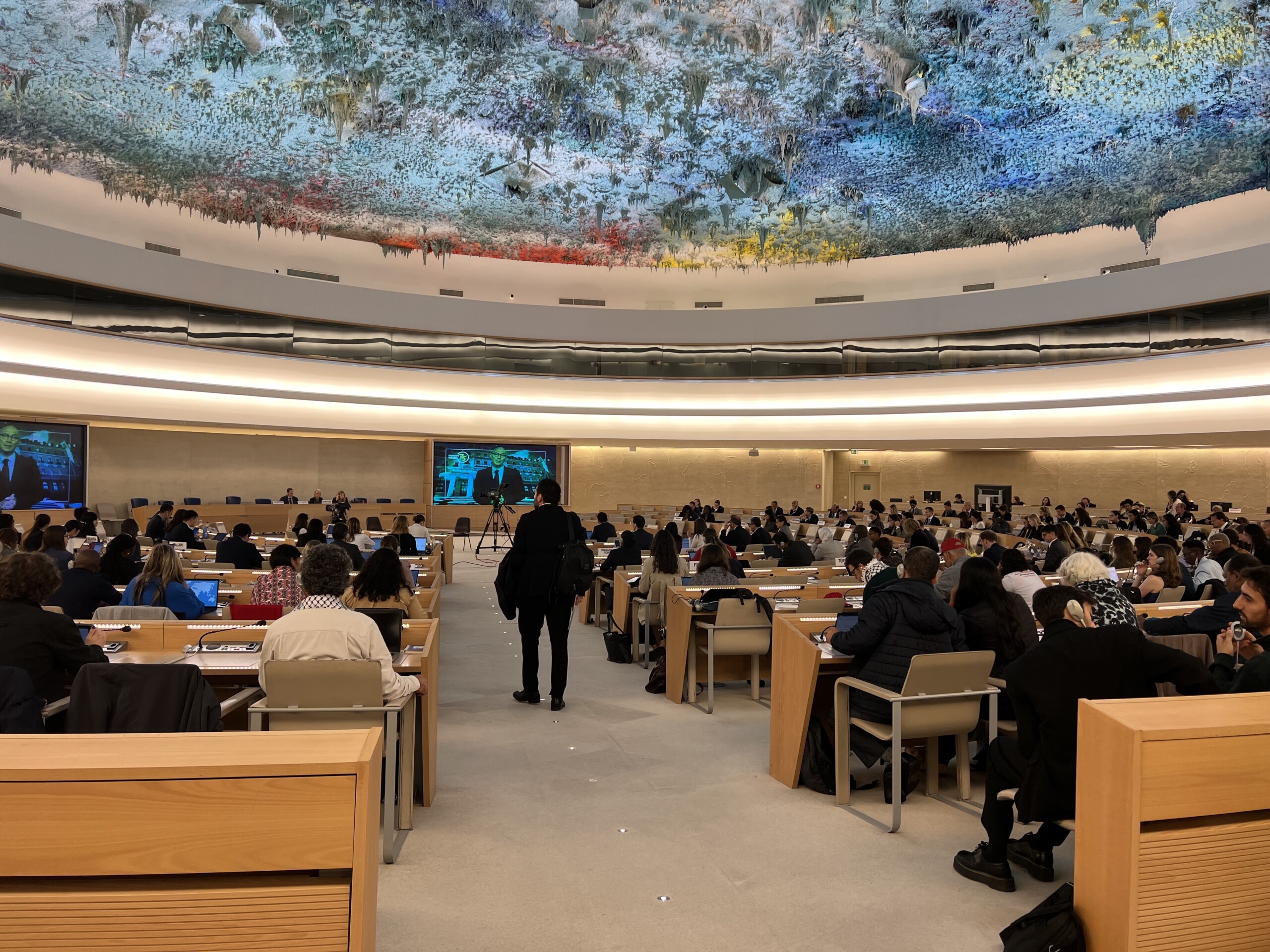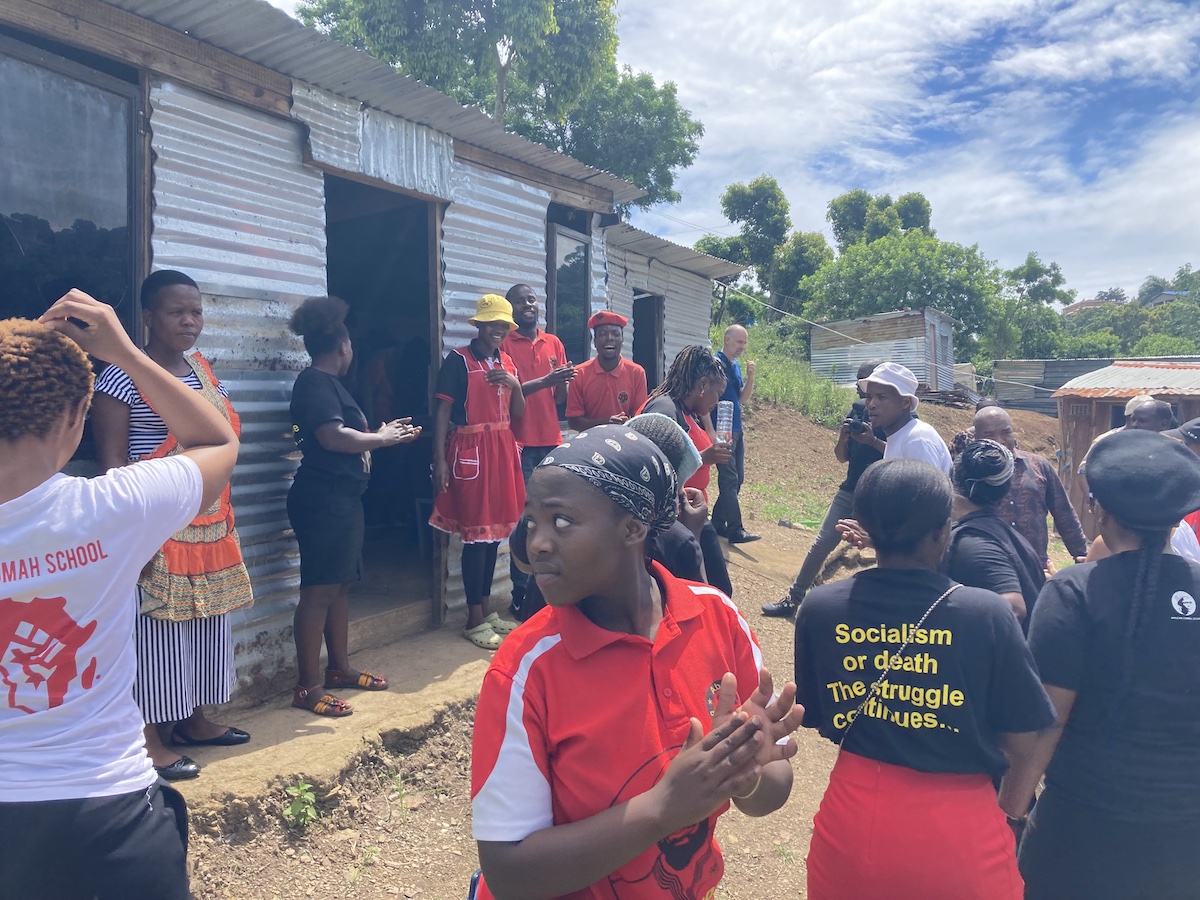Corporate capture refers to how an economic elite (or the privileged 1%) undermines the realization of human rights and the environment by exerting influence over domestic and international decision-making spaces, including the United Nations.
The elements of corporate capture identified by ESCR-Net members include:
Community Manipulation
Community manipulation refers to the corporate undermining of community decision-making processes related to an investment project. The strategies employed involve the use of financial or other incentives to entice community leaders to support corporate projects that undermine the interests and decisions of the wider community. At times these strategies involve the use of alcohol, offers of employment, financial rewards and/or intimidation to secure leaders’ approvals.
Corporate Social Responsibility (CSR) can be used as a tactic to manipulate or divide communities to acquire a “social license to operate”. Through community development projects, at times in partnership with “so-called” foundations, charities or NGOs, CSR offers short-term benefits that are often intended to mask long-term harm.
Economic Diplomacy
The economic diplomacy dimension of corporate capture refers to support from diplomatic missions which advance the interests of corporations from their countries operating in foreign countries in cases where these actions are at the expense of the human rights of local people. In its worst form, diplomatic missions have defended the questionable activities and provided further support for ‘their’ corporations when they become implicated in serious human rights violations in foreign countries.
Judicial Interference
Judicial interference is the influence corporations exert over the proceedings and rulings of courts which provide favorable outcomes for corporations and undermine due process and efforts at seeking access to remedy and accountability. Judicial interference has been facilitated at corporate-sponsored gatherings for judicial officials and at other times when corporations have exerted influence over their ‘home’ states to intervene in legal cases involving corporate-human rights violations to argue in favor of the interests of the corporate defendants.
Legislative & Policy Interference
Legislative & Policy interference refers to pressure exerted on legislatures and policy makers by corporations and their representatives to provide greater opportunities for business, or remove/undermine regulation of corporate activities, which ultimately undermine the protection of human rights. Among other forms of interference, these activities often include provision of campaign or other donations to elected officials in return for draft legislation or votes during parliamentary proceedings favorably to the interests of corporations.
Privatizing Public Security Services
Privatizing the use of public security services involves the provision of a salary or other inducements by corporations for police, army or other public security services to act in their interest against local communities. The activities these state security services often provide for corporations are confronting demonstrators, gathering intelligence on local communities, and intimidating opponents of corporate projects.
Revolving Door
‘Revolving Door’ as a component of corporate capture refers to the movement of employees from the corporate sector to public regulators and other agencies, and vice versa, in the process undermining the impartiality of state agencies, facilitating corporate-friendly regulation and policy, lessening the application of existing regulations and securing favorable corporate contracts with state agencies.
Shaping narratives
Influencing public opinion by manipulating the media and spreading dominant narratives about progress and development is another manifestation of corporate capture. Delegitimizing the struggles of affected groups and communities that stand up against corporate interests has become an increasingly common practice. Narratives are often used to justify the privatization of essential public services (often undermining human rights to water, sanitation, health and education), the use of public resources—via tax subsidies or policy, support from export credit agencies or other forms of public finance—to further the private interests of corporate actors, and the implementation of large-scale projects at the local level.
Capture of Academic Institutions
Corporations are increasingly involved in financing academic institutions, affording them opportunities to influence educational priorities including curricula as well as research agendas. It’s also becoming increasingly common for universities and research centers to receive corporate financing to develop assessments or studies regarding corporate-sponsored projects. Finally, corporate philanthropy associated with educational and research institutions can bolster a corporation’s public image, dampening public debate about the company’s adverse impacts.






